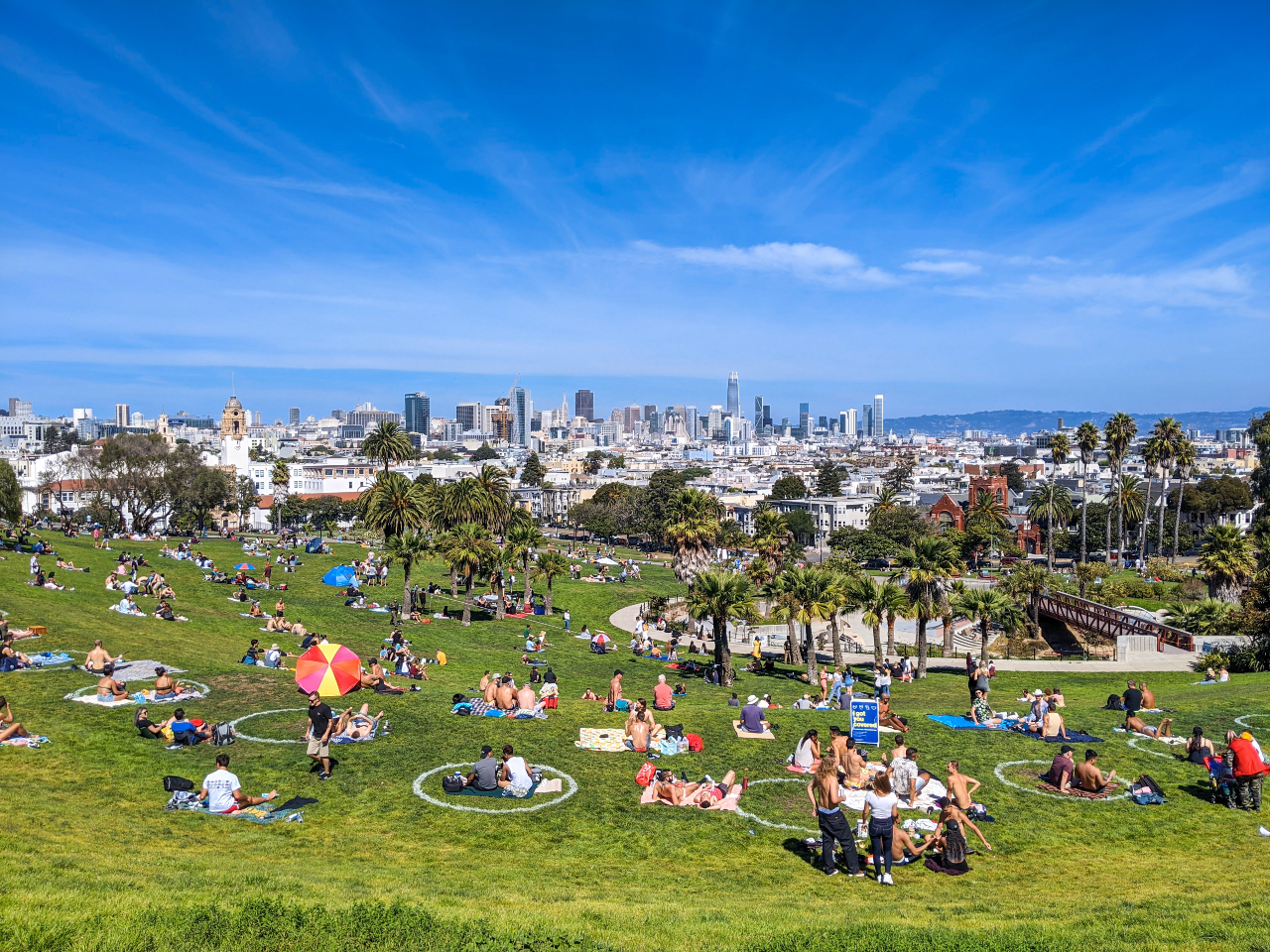
For many, it seems like the pandemic has an end in sight. More than 44% of the US’s population have been fully vaccinated and 53% have received at least one dose, as of mid-June. There is still a long way to go, but progress is being made.

One surprising effect of the pandemic is that the real estate market is thriving. Data from HomeLight shows that 97% of the country is experiencing a strong seller’s market and they don’t expect business to slow down any time soon.
So, what can we expect life in San Francisco to be like once things return to normal?
Remote work sparks migration to smaller cities
Remote work is one of those things that you didn’t think you needed until you actually experienced it. San Francisco has always been known as the epicentre for all things tech. Budding tech entrepreneurs and existing tech giants come to Silicon Valley and those with a career in these fields follow.
One of the more surprising effects of the pandemic is that businesses have proved that, yes, many workers can do their jobs (and be productive) at home. In a study released by the Pew Research Center of 5,858 American adults who currently work from home, a large portion of those employees said that they rarely telecommuted before the pandemic.
Today, 71% of those remote workers say they’re now able to work from home at least most of the time; and 54% said that they would like to continue to work from home once the pandemic is over. What’s even more interesting is that, according to a recent study, 10–20% of those workers are willing to take a pay cut as long as they can continue to work remotely.
Being able to work remotely is the spark that many people need to finally make that call to ask a local real estate agent how to sell a house in the city and buy one in the ‘burbs. San Francisco lost 124,131 residents between July 2019 and July 2020. More than 95% of real estate agents say that they’re seeing a high demand for houses in smaller cities, the suburbs, and rural areas – as long as there’s a strong internet connection, people will be there.
Renting may be a more viable option
Owning a house is expensive, there’s no denying that, and buying a house is even more costly. The median price for a single-family home in San Francisco County was $1.8m in April, but 73% of real estate agents believe home values will still increase over the next six months. Some 94% of agents go on to say that bidding wars are happening more frequently in their areas, which increases prices even further.
Meanwhile, young people who are trying to move out of their parent’s home are more likely to rent a place rather than buy. Although the median monthly rent for a one-bedroom apartment hovers around $2,050 and is still higher than the rest of the country, it’s down by 19% from the $2,550 it was in June 2020.
Apartment sales increased by October and 48.8% of real estate agents around the country say that while demand steers more towards single-family homes, it hasn’t hurt the condo market. Some 55.5% of agents in cities like San Francisco said their condo market is already improving and will continue to do so as people get vaccinated.
Retail dies but restaurants and bars thrive
The pandemic has led people to stay in their homes for more than a year and, in that time, there was a huge shift in how we shop. Brick-and-mortar stores closed down and people relied heavily on delivery services and online retailers for their shopping needs. With huge conglomerates like Amazon and Walmart, it’s no surprise that those smaller businesses have closed and probably aren’t going to reopen.
On the flip side, as lockdown restrictions are removed, people are flocking to restaurants and bars with renewed enthusiasm. The good news is that San Francisco has lifted many of its mandates. Patrons can go back to dining out and grabbing drinks like they were able to before Covid.
San Francisco’s rebirth
Covid-19 has thrown everything off track these past 16 months, but San Francisco has proved to be a resilient city that can roll with the punches. Although many businesses are switching to a work-from-home model at least part-time and some households will migrate to other areas, the demand for housing continues to rise.
The city is full of opportunity, culture and a lifestyle you can’t get anywhere else. Natives of the city and newcomers love this place and who can blame them? Even 68.4% of real estate agents say people are coming back to the city because they want to surround themselves with the culture, nightlife, restaurants and social scenes that the Bay Area offers.
The pandemic may have put lives on hold, but San Francisco is readying to open up again.






